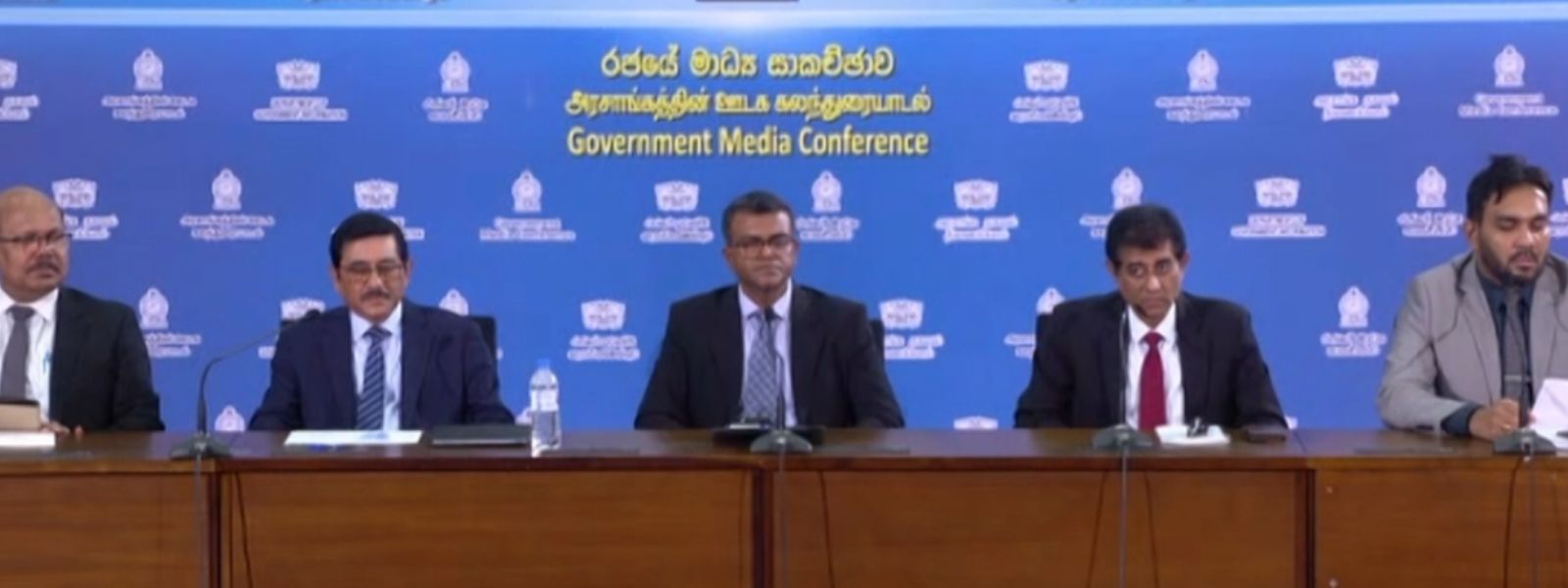.webp)

Tariff Shift Positions Sri Lanka Favorably in Global Trade - Govt
COLOMBO (News 1st); Sri Lanka says it has successfully negotiated a reduction in the U.S.-imposed tariff rate from 44% to 30%, positioning itself more competitively among peer nations in the global trade landscape. The announcement follows weeks of high-level discussions and strategic engagement led by the Sri Lankan government.
Speaking on the development, Dr. Nandalal Weerasinghe, Governor of the Central Bank, emphasized that Sri Lanka had been at a disadvantage compared to other countries competing in the U.S. market. “While we faced a 44% tariff, several of our competitors enjoyed significantly lower rates,” he noted. “Now, with the revised 30% rate, we find ourselves in a more favorable position relative to countries like Laos, Myanmar, Cambodia, Thailand, Bangladesh, Serbia, and Indonesia, which still face tariffs ranging from 31% to 40%.”
Dr. Weerasinghe further explained that Sri Lanka now shares the 30% bracket with countries such as Algeria, Bosnia, Iraq, Libya, and South Africa. Meanwhile, nations like Brunei, Japan, Kazakhstan, Malaysia, South Korea, and Tunisia benefit from even lower rates at 25%. “This shift enhances our relative competitiveness,” he added, “and we must continue to engage intelligently and strategically to further improve our standing.”
On April 2, during a press briefing held at the Rose Garden of the White House, U.S. President Donald Trump announced a new reciprocal tariff policy aimed at addressing trade imbalances with partner countries. As part of this initiative, a 44% tariff was imposed on imports from Sri Lanka.
President Trump explained that the decision was driven by the need to correct longstanding trade deficits and ensure fair treatment in international trade.
Following the announcement, the Sri Lankan government initiated diplomatic discussions with the U.S. to seek a reduction in the imposed tariff rate.
As a result of these negotiations, President Trump issued a formal letter yesterday confirming a 14% reduction in the tariff rate, bringing it down to 30%.
In the letter, the U.S. President highlighted the persistent trade imbalance between the two countries, attributing it to Sri Lanka’s tariff and non-tariff barriers, as well as other trade restrictions. He stated that these factors have hindered the development of a mutually beneficial economic relationship.
The letter also noted that the new tariffs were necessary to address continuous trade deficits, which pose a threat to U.S. economic interests and national security. However, President Trump offered encouragement to Sri Lankan businesses, promising expedited approvals for companies that choose to establish operations within the United States.
Despite the reduction, President Trump issued a warning: if Sri Lanka responds to the new tariff rate by increasing its own tariffs on U.S. goods, the United States will swiftly raise its tariffs again. He reiterated that while the U.S. hopes for a long-term trade partnership, future tariff adjustments—either increases or reductions—will depend on the evolving nature of bilateral relations.
The U.S. administration, through a letter from President Donald Trump, has indicated that discussions may continue until August 1, offering Sri Lanka a window to pursue further concessions. “Had all our proposals been accepted earlier, this process might have concluded already,” Dr. Weerasinghe remarked. “But we are navigating this with a focus on economic and social impact, aiming to maximize national benefit.”
Dr. Harsha Suriyapperuma, Secretary to the Ministry of Finance, echoed these sentiments, stating that Sri Lanka has received one of the most substantial tariff reductions among the countries involved in the U.S. trade review. “From the outset, His Excellency the President has been directly involved, leading stakeholder consultations and guiding this process,” he said.
Dr. Suriyapperuma stressed the importance of maintaining momentum. “Our goal now is to continue this dialogue, engage relevant stakeholders, and ensure that Sri Lanka remains competitive in the international market. The President’s letter clearly outlines that we have until August 1 to make further progress, and we intend to use that time wisely.”
Other Articles
Featured News





.png )
-823922_550x300.jpg)
-823916_550x300.jpg)


-823892_550x300.jpg)







-822734_550x300.jpg)
-822716_550x300.jpg)
-822495_550x300.jpg)
-819380_550x300.jpg)









.webp)






